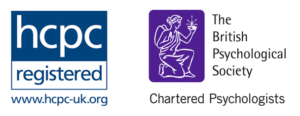Trauma doesn’t just live in our minds—it often leaves its imprint on the body as well. Many people notice physical symptoms long after a traumatic event, sometimes without realising the connection. Understanding how trauma shows up in the body can be the first step towards compassionate self-care and healing.
How Trauma Affects the Body
Trauma triggers the body’s survival instincts: fight, flight, or freeze. If those reactions aren’t fully processed, the body can stay in a state of high alert, even after the danger has passed.
Physical Signs of Trauma
Look Out For:
- Unexplained aches and pains
- Chronic muscle tension or headaches
- Digestive issues (stomach pain, nausea, IBS)
- Changes in sleep patterns or nightmares
- Racing heart, palpitations, or chest tightness
- Shortness of breath
- Fatigue or exhaustion
- Startle responses or feeling jittery
Emotional and Psychological Signs
You Might Notice:
- Flashbacks or intrusive memories
- Emotional numbness or detachment
- Feeling easily overwhelmed or irritable
- Persistent anxiety or panic attacks
- Mood swings or depression
- Difficulty trusting others or feeling safe
Why the Body Holds Trauma
When trauma is not fully processed, intense emotions and memories can become stored in the nervous system. This “body memory” may show up through physical symptoms, even if the mind has buried the experience.
Making Sense of Unexplained Symptoms
If physical symptoms don’t improve with medical treatment, it may be helpful to explore possible links with past emotional experiences or trauma. Recognising this connection is not about blame—it’s an opportunity for self-understanding and healing.
Steps Towards Healing
Helpful Approaches:
- Gentle body-based therapies (yoga, massage, somatic experiencing)
- Mindfulness and grounding techniques
- Regular movement and physical activity
- Safe, compassionate therapy with trauma-informed professionals
- Practising self-compassion and patience
When to Seek Support
Consider professional help if:
- Physical and emotional symptoms disrupt daily life
- Trauma memories feel overwhelming or intrusive
- Relationships or work are affected
- You feel stuck in old patterns or pain
Support can help you process experiences, rebalance your nervous system, and move forward with greater ease.
Recommended Reading
- “The Body Keeps the Score” by Bessel van der Kolk
- “Waking the Tiger: Healing Trauma” by Peter Levine
- “Trauma Is Really Strange” by Steve Haines
Remember: Trauma may leave echoes in the body, but healing is always possible. With understanding, gentle care, and professional support, you can reclaim a sense of safety and wellbeing.








